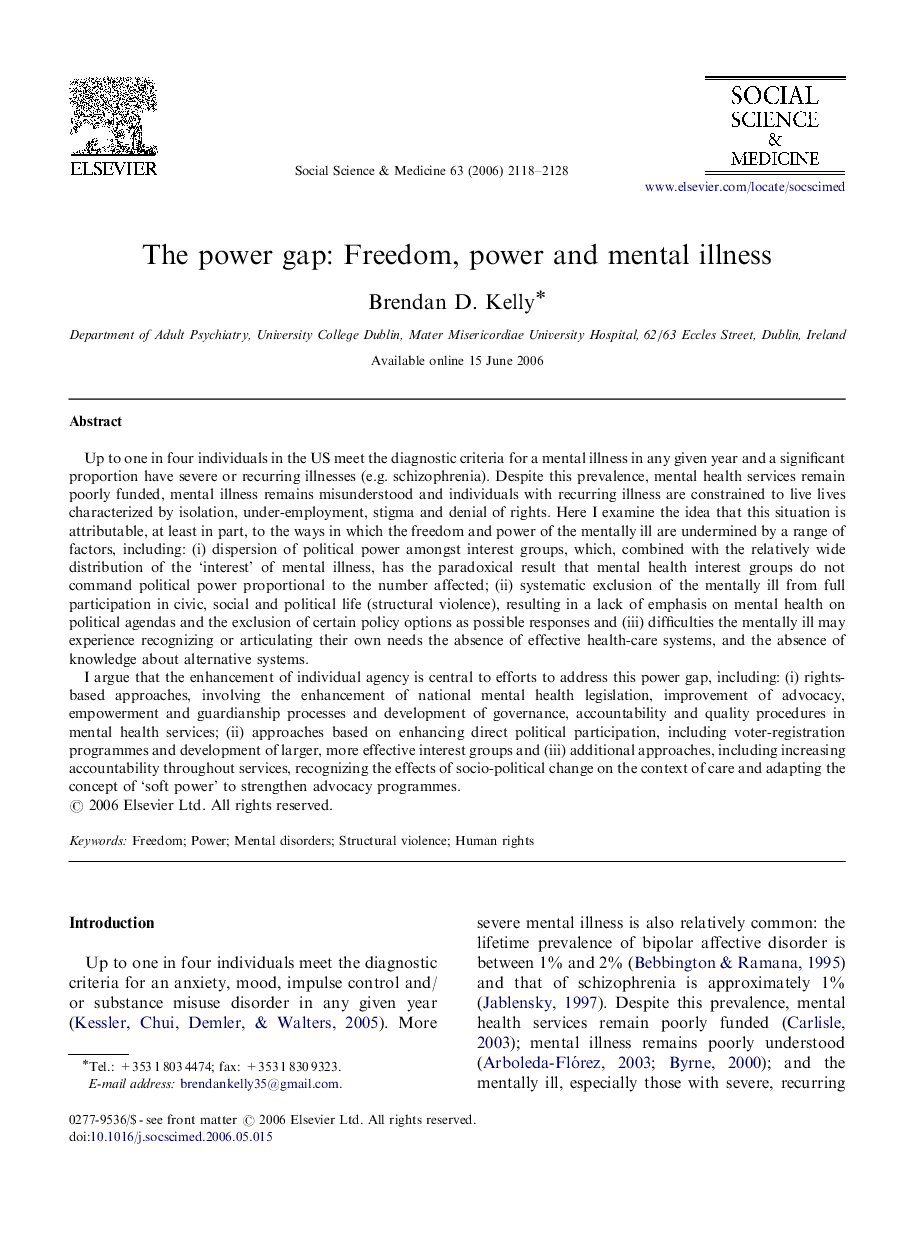| کد مقاله | کد نشریه | سال انتشار | مقاله انگلیسی | نسخه تمام متن |
|---|---|---|---|---|
| 953982 | 927619 | 2006 | 11 صفحه PDF | دانلود رایگان |

Up to one in four individuals in the US meet the diagnostic criteria for a mental illness in any given year and a significant proportion have severe or recurring illnesses (e.g. schizophrenia). Despite this prevalence, mental health services remain poorly funded, mental illness remains misunderstood and individuals with recurring illness are constrained to live lives characterized by isolation, under-employment, stigma and denial of rights. Here I examine the idea that this situation is attributable, at least in part, to the ways in which the freedom and power of the mentally ill are undermined by a range of factors, including: (i) dispersion of political power amongst interest groups, which, combined with the relatively wide distribution of the ‘interest’ of mental illness, has the paradoxical result that mental health interest groups do not command political power proportional to the number affected; (ii) systematic exclusion of the mentally ill from full participation in civic, social and political life (structural violence), resulting in a lack of emphasis on mental health on political agendas and the exclusion of certain policy options as possible responses and (iii) difficulties the mentally ill may experience recognizing or articulating their own needs the absence of effective health-care systems, and the absence of knowledge about alternative systems.I argue that the enhancement of individual agency is central to efforts to address this power gap, including: (i) rights-based approaches, involving the enhancement of national mental health legislation, improvement of advocacy, empowerment and guardianship processes and development of governance, accountability and quality procedures in mental health services; (ii) approaches based on enhancing direct political participation, including voter-registration programmes and development of larger, more effective interest groups and (iii) additional approaches, including increasing accountability throughout services, recognizing the effects of socio-political change on the context of care and adapting the concept of ‘soft power’ to strengthen advocacy programmes.
Journal: Social Science & Medicine - Volume 63, Issue 8, October 2006, Pages 2118–2128